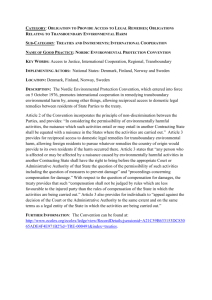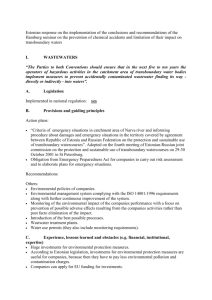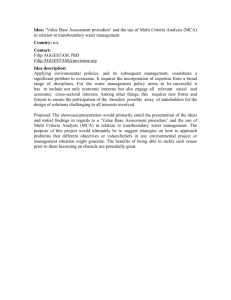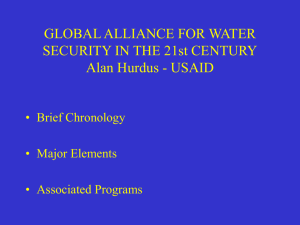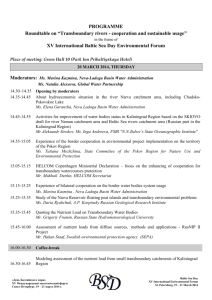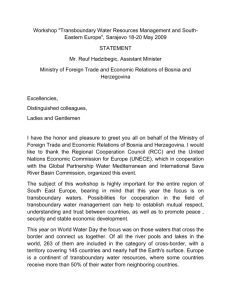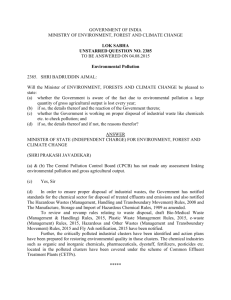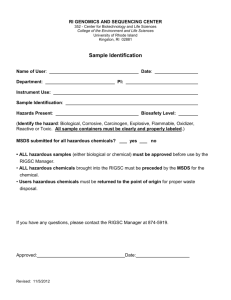Draft principles on the allocation of loss in the case of transboundary
advertisement
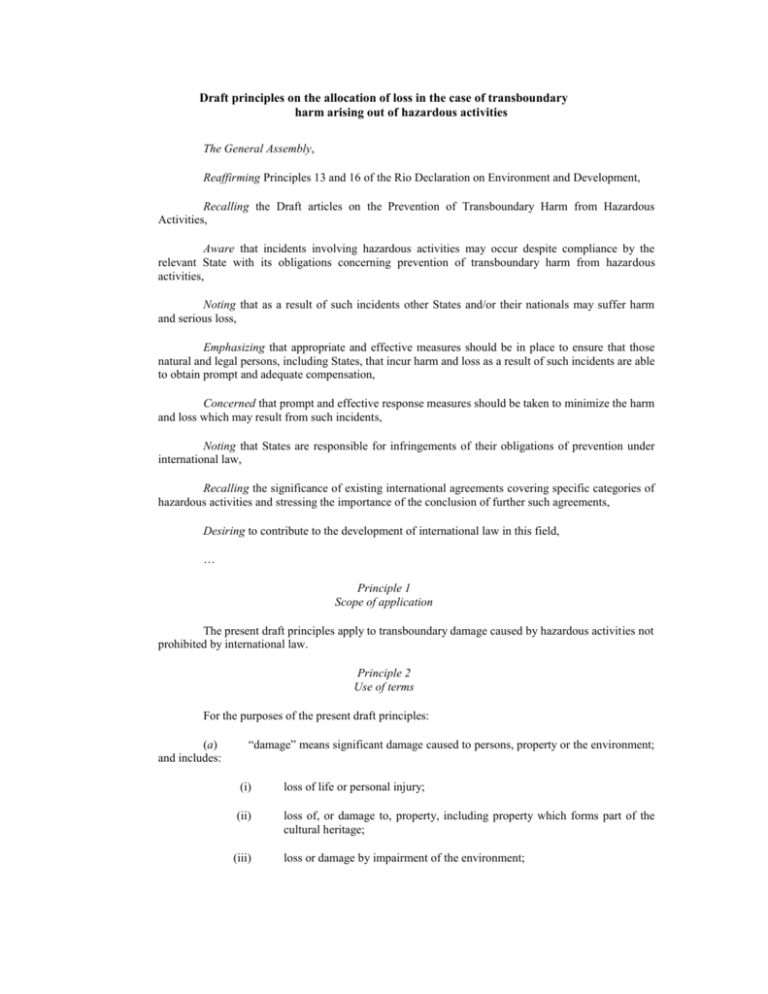
Draft principles on the allocation of loss in the case of transboundary harm arising out of hazardous activities The General Assembly, Reaffirming Principles 13 and 16 of the Rio Declaration on Environment and Development, Recalling the Draft articles on the Prevention of Transboundary Harm from Hazardous Activities, Aware that incidents involving hazardous activities may occur despite compliance by the relevant State with its obligations concerning prevention of transboundary harm from hazardous activities, Noting that as a result of such incidents other States and/or their nationals may suffer harm and serious loss, Emphasizing that appropriate and effective measures should be in place to ensure that those natural and legal persons, including States, that incur harm and loss as a result of such incidents are able to obtain prompt and adequate compensation, Concerned that prompt and effective response measures should be taken to minimize the harm and loss which may result from such incidents, Noting that States are responsible for infringements of their obligations of prevention under international law, Recalling the significance of existing international agreements covering specific categories of hazardous activities and stressing the importance of the conclusion of further such agreements, Desiring to contribute to the development of international law in this field, … Principle 1 Scope of application The present draft principles apply to transboundary damage caused by hazardous activities not prohibited by international law. Principle 2 Use of terms For the purposes of the present draft principles: (a) and includes: “damage” means significant damage caused to persons, property or the environment; (i) loss of life or personal injury; (ii) loss of, or damage to, property, including property which forms part of the cultural heritage; (iii) loss or damage by impairment of the environment; (iv) the costs of reasonable measures of reinstatement of the property, or environment, including natural resources; (v) the costs of reasonable response measures; (b) “environment” includes natural resources, both abiotic and biotic, such as air, water, soil, fauna and flora and the interaction between the same factors, and the characteristic aspects of the landscape; (c) “hazardous activity” means an activity which involves a risk of causing significant harm; (d) “State of origin” means the State in the territory or otherwise under the jurisdiction or control of which the hazardous activity is carried out; (e) “transboundary damage” means damage caused to persons, property or the environment in the territory or in other places under the jurisdiction or control of a State other than the State of origin; (f) “victim” means any natural or legal person or State that suffers damage; (g) “operator” means any person in command or control of the activity at the time the incident causing transboundary damage occurs. Principle 3 Purposes The purposes of the present draft principles are: (a) to ensure prompt and adequate compensation to victims of transboundary damage; and (b) to preserve and protect the environment in the event of transboundary damage, especially with respect to mitigation of damage to the environment and its restoration or reinstatement. Principle 4 Prompt and adequate compensation 1. Each State should take all necessary measures to ensure that prompt and adequate compensation is available for victims of transboundary damage caused by hazardous activities located within its territory or otherwise under its jurisdiction or control. 2. These measures should include the imposition of liability on the operator or, where appropriate, other person or entity. Such liability should not require proof of fault. Any conditions, limitations or exceptions to such liability shall be consistent with draft principle 3. 3. These measures should also include the requirement on the operator or, where appropriate, other person or entity, to establish and maintain financial security such as insurance, bonds or other financial guarantees to cover claims of compensation. 4. In appropriate cases, these measures should include the requirement for the establishment of industry-wide funds at the national level. 5. In the event that the measures under the preceding paragraphs are insufficient to provide adequate compensation, the State of origin should also ensure that additional financial resources are made available. Principle 5 Response measures Upon the occurrence of an incident involving a hazardous activity which results or is likely to result in transboundary damage: (a) the State of origin shall promptly notify all States affected or likely to be affected of the incident and the possible effects of the transboundary damage; (b) the State of origin, with the appropriate involvement of the operator, shall ensure that appropriate response measures are taken and should, for this purpose, rely upon the best available scientific data and technology; (c) the State of origin, as appropriate, should also consult with and seek the cooperation of all States affected or likely to be affected to mitigate the effects of transboundary damage and if possible eliminate them; (d) the States affected or likely to be affected by the transboundary damage shall take all feasible measures to mitigate and if possible to eliminate the effects of such damage; (e) the States concerned should, where appropriate, seek the assistance of competent international organizations and other States on mutually acceptable terms and conditions. Principle 6 International and domestic remedies 1. States shall provide their domestic judicial and administrative bodies with the necessary jurisdiction and competence and ensure that these bodies have prompt, adequate and effective remedies available in the event of transboundary damage caused by hazardous activities located within their territory or otherwise under their jurisdiction or control. 2. Victims of transboundary damage should have access to remedies in the State of origin that are no less prompt, adequate and effective than those available to victims that suffer damage, from the same incident, within the territory of that State. 3. Paragraphs 1 and 2 are without prejudice to the right of the victims to seek remedies other than those available in the State of origin. 4. States may provide for recourse to international claims settlement procedures that are expeditious and involve minimal expenses. 5. States should guarantee appropriate access to information relevant for the pursuance of remedies, including claims for compensation. Principle 7 Development of specific international regimes 1. Where, in respect of particular categories of hazardous activities, specific global, regional or bilateral agreements would provide effective arrangements concerning compensation, response measures and international and domestic remedies, all efforts should be made to conclude such specific agreements. 2. Such agreements should, as appropriate, include arrangements for industry and/or State funds to provide supplementary compensation in the event that the financial resources of the operator, including financial security measures, are insufficient to cover the damage suffered as a result of an incident. Any such funds may be designed to supplement or replace national industry-based funds. Principle 8 Implementation 1. Each State should adopt the necessary legislative, regulatory and administrative measures to implement the present draft principles. 2. The present draft principles and the measures adopted to implement them shall be applied without any discrimination such as that based on nationality, domicile or residence. 3. States should cooperate with each other to implement the present draft principles. _____________
